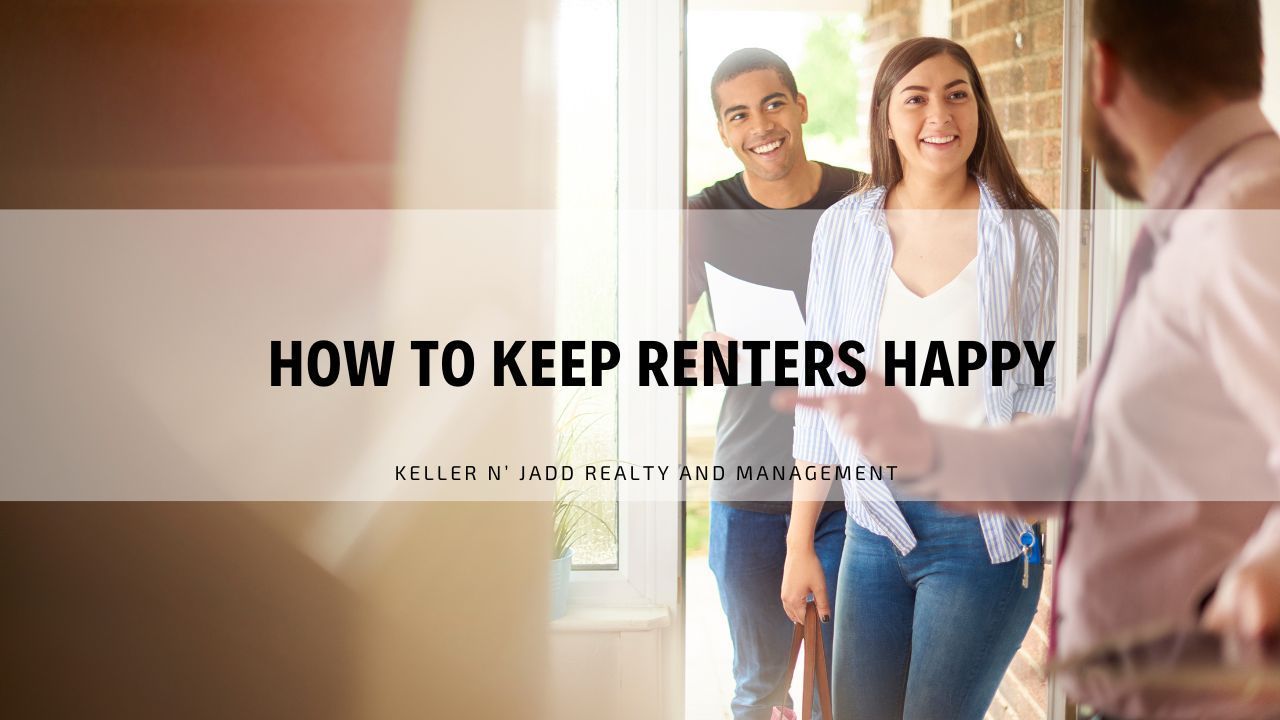Nevada Fair Housing Act: An Overview
The federal fair housing laws is a landmark piece of legislation designed to prevent housing discrimination in housing-related activities. While the federal fair housing act applies across the United States, each state may have additional rules as to what constitutes as illegal housing discrimination and what housing discrimination regulations that landlords must adhere to.
In this comprehensive guide, we'll explore the federal fair housing act as it applies to Nevada landlords and how to prevent illegal housing discrimination.
From understanding the fundamental principles of the federal fair housing act to knowing the specific requirements and prohibitions under Nevada law, this article will provide you with the knowledge needed to not discriminate against tenants and comply and with fair housing regulations and offer practical tips for implementation so you can avoid preforming illegal acts of discrimination.
What is the Fair Housing Act?
The federal fair housing act is designed to ensure that everyone has equal opportunities when seeking housing and does not have to face housing discrimination. This includes renters, buyers, and those looking for financial assistance for housing.
The federal fair housing act also provides equal opportunities and prevents illegal housing discrimination in housing-related activities such as appraising homes, seeking mortgage lending, and listing properties on real estate services. These housing discrimination regulations are foundational to creating a fair housing market and reduces housing discrimination.
Understanding Housing Discrimination
Housing discrimination can manifest in various ways, from blatant refusals to subtle biases. Tenants and landlords must recognize the signs of housing discrimination to foster a fair housing environment. The two main types of housing discrimination include:

- Intentional Discrimination: This form of illegal housing discrimination occurs when a landlord purposefully discriminate or mistreats a tenant or prospective tenant based on a protected class. Examples include housing discrimination related to refusing to rent to someone because of their religion, charging higher rent based on a tenant's disability, or refusing to make reasonable accommodations for persons with a disability.
- Unintentional Discrimination: Unintentional housing discrimination happens when a landlord's policies or practices disproportionately discriminate against protected class. For instance, stating that a unit is "ideal for young professionals" could unintentionally be seen as housing discrimination as it exclude older renters.
Protected Classes Under the Fair Housing Act
Fair housing laws are designed to prevent housing discrimination and ensure equal access to housing opportunities. Under the federal Fair Housing Act, protected classes include race, color, national origin, religion, sex, familial status, and disability. These state fair housing laws are fundamental in preventing housing discrimination and unfair treatment in housing-related activities. Nevada state fair housing laws further extends coverage to include sexual orientation and gender identity or expression.
National origin is a crucial protected class, ensuring that individuals do not face housing discrimination and are not unfairly treated or denied housing based on their national origin, ethnicity, or any perceived notion of national origin. Housing discrimination due to national origin is prohibited, and individuals must have equal access to housing regardless of their ethnic background.
Religion is a crucial protected class under the Fair Housing Act. Discrimination based on religion is prohibited in all housing activities, including renting, buying, and securing financing. This means individuals cannot be denied housing or treated unfairly due to their religion or religious practices.
Landlords must also accommodate tenants’ religious practices, such as observance of holidays or dietary needs. These protections ensure that everyone has equal access to housing and is treated fairly regardless of their religion. Compliance with these regulations upholds the principle that religion should not be a barrier to accessing housing opportunities.
The same protections apply to disability, ensuring individuals with a disability are not denied housing opportunities or faced with housing discriminatory practices. This includes not only a physical disability but also a mental health disability, ensuring comprehensive protection.
Gender identity or expression are important aspects of expanded protections under state laws. Gender identity refers to a person’s internal sense of their gender identity, which may differ from the sex assigned at birth. Gender identity or expression includes the various ways individuals express their gender identity through clothing, behavior, and personal appearance.
Discrimination based on disability, national origin, religion, gender identity or expression is strictly prohibited in renting, buying, or securing financing for a home. These protections ensure that all individuals, regardless of their national origin, religion, disability, or gender identity, have equal access to housing opportunities and are safeguarded against discriminatory practices.
Exemptions to the Fair Housing Act
While the federal fair housing act covers a wide range of illegal housing discrimination scenarios, there are a few exemptions:
- Owner-Occupied Buildings: If the building has four or fewer units and the owner lives in one of them, it's exempt from the Fair Housing Act.
- Single-Family Homes: If a single-family home is sold or rented by the owner without using a broker or advertising discriminatory preferences, it's exempt. This applies as long as the owner does not own more than three single-family homes at one time.

- Private Clubs and Religious Organizations: Private clubs that are not open to the public and religious organizations can give preference to their members for housing they operate, as long as they don't discriminate based on race, color, or national origin.
These exemptions mean that certain small-scale landlords and specific organizations can be exempt from some fair housing requirements, but they still cannot engage in discriminatory advertising or practices.
Practical Steps for Landlords to Ensure Compliance
To ensure compliance with federal fair housing laws and to prevent housing discrimination, landlords can take several practical steps:
- Educate Yourself: Stay informed about federal and state fair housing laws. Regularly attend training sessions and seminars to understand the latest legal requirements and best practices.
- Develop Clear Policies: Create and implement clear, written policies for tenant selection, lease agreements, and maintenance procedures. Ensure these policies are nondiscriminatory and apply them consistently to all applicants and tenants.
- Screen Tenants Fairly: Use the same criteria for all applicants when screening tenants. Focus on objective factors like credit history, income, and housing history, and avoid questions about protected characteristics.
- Advertise Inclusively: Ensure all advertising materials and real estate listings are free from discriminatory language . Use inclusive language that welcomes all applicants, regardless of their gender identity or expression and other protected characteristics.

- Maintain Records: Keep detailed records of all tenant applications, communications with applicants and tenants, and any maintenance or repair requests. This documentation can be vital if any discrimination claims arise.
- Make Reasonable Accommodations: Be prepared to make reasonable accommodations for tenants with disabilities. This might include allowing service animals in a no-pet building or making minor modifications to the rented premises.
- Handle Complaints Promptly: Address any complaints of discrimination or harassment swiftly and effectively. Take them seriously, investigate thoroughly, and take appropriate action if needed.
- Regularly Review Practices: Periodically review and update your practices and policies to ensure they comply with current laws and regulations. Seek legal advice if you are unsure about any aspect of your compliance.
- Post Fair Housing Information: Display fair housing posters and distribute informational materials to ensure tenants and applicants are aware of their rights under federal fair housing laws.
By following these practical steps, landlords can help ensure they comply with Nevada fair housing laws and provide equal housing opportunities to all applicants and tenants to prevent housing discrimination.
Benefits of Compliance
Complying with fair housing laws offers several benefits for landlords and real estate investment managers in Nevada:
- Avoiding Legal Issues: Compliance helps landlords steer clear of lawsuits, fines, and penalties associated with housing discrimination claims. This can save significant time and money that would otherwise be spent on legal battles.

- Broader Tenant Pool: By adhering to fair housing laws, landlords can attract a more diverse range of tenants, increasing the likelihood of finding qualified renters quickly and reducing vacancy rates.
- Enhanced Reputation: Fair and equitable treatment of all applicants and tenants can enhance a landlord’s reputation. Positive word-of-mouth and good reviews can lead to more referrals and long-term tenants.
- Increased Trust and Cooperation: Tenants who feel they are treated fairly are more likely to have a positive relationship with their landlord. This can lead to better communication, timely rent payments, and fewer conflicts.
- Compliance with Insurance Requirements: Many insurance policies require compliance with federal and state laws, including fair housing regulations. Ensuring compliance can prevent issues with insurance coverage.
- Promoting Community Diversity: By following fair housing laws, landlords contribute to creating inclusive, diverse communities, which can enhance the overall quality of life in the area and make it a more desirable place to live.
- Financial Stability: Consistent and fair practices can lead to stable income, as diverse and satisfied tenants are more likely to stay longer and take better care of the rented premises.
- Support from Government Programs: Compliance with fair housing laws can make landlords eligible for various government programs and incentives designed to support fair housing practices an prevent housing discrimination.

Overall, complying with federal fair housing laws is not just a legal obligation but a smart business practice that promotes fairness, reduces risks and housing discrimination, and fosters a positive and inclusive housing environment.
Final Thoughts
Understanding and complying with the federal fair housing laws and Nevada's specific regulations is essential for landlords to foster a fair and non-discriminatory housing environment. This comprehensive guide has outlined the principles of the Act, identified protected classes, explained exemptions, and provided practical steps for compliance.
By adhering to these guidelines, landlords can avoid legal issues with
landlord-tenant laws, enhance their reputation, attract a broader tenant pool, and contribute to diverse and inclusive communities. For personalized guidance and professional assistance in managing your properties, consider reaching out to a reputable management company like
Keller n' Jadd Realty & Management.
Our expertise can help ensure that you remain compliant and successful in your real estate investment management endeavors. Contact us today to get started!
Disclaimer: Please note that the information provided in this blog is intended for general guidance and should not be considered as a replacement for professional legal advice. It is important to be aware that laws pertaining to property management may change, rendering this information outdated by the time you read it.












